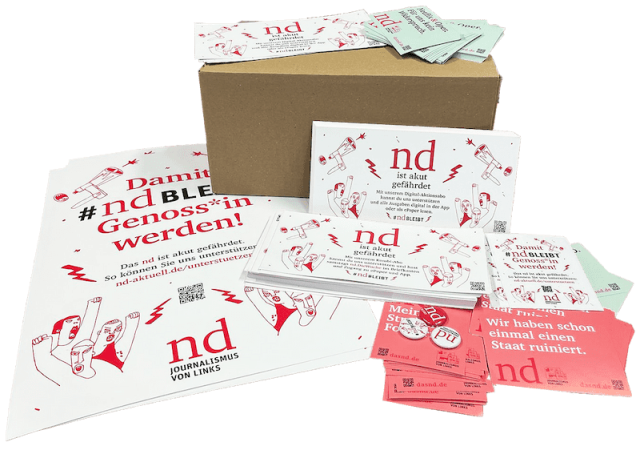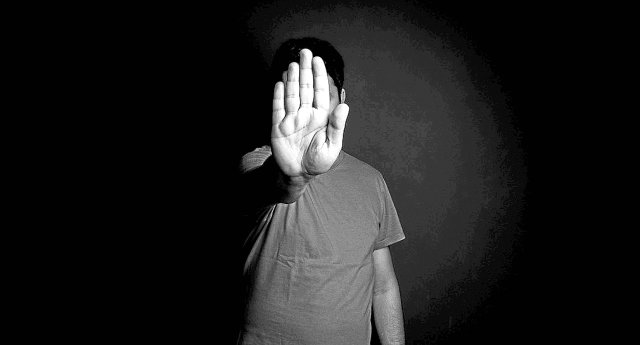In public spaces, men are even more often affected by violence than women – although the perpetrators are usually also male
Photo: pixabay
Björn Süfke works at “man-o-mann” in Bielefeld. The East Westphalian advice center is one of few of its kind in Germany. “Specific offers tailored to male problems are unfortunately in short supply,” regrets the psychologist and author. In this country, priority is given to women’s, family and parenting counseling institutions. The fact that even the supposedly “stronger sex” sometimes needs help has not yet become widely accepted in social work practice.
Süfke is one of the pioneers of the “men’s helpline” based in Bielefeld but accessible nationwide. The offer is financially supported by the North Rhine-Westphalia state government in cooperation with four other federal states (Bavaria, Baden-Württemberg, Mecklenburg-Western Pomerania and Rhineland-Palatinate). The total budget is around 400,000 euros per year; due to the low material costs, the majority of the money goes towards fees for the consultants.
Demand was high from the start – especially since the start of the project in April 2020 coincided with the first Corona lockdown and therefore in-person support was no longer possible at times. Since then, calls have been coming from all over Germany and even from neighboring countries. The team does not only consist of the employees of the Bielefeld advice center. There are also other specialists from psychology, education and therapy in other cities, including some (few) women.
nd.DieWoche – our weekly newsletter

With our weekly newsletter nd.DieWoche look at the most important topics of the week and read them Highlights our Saturday edition on Friday. Get your free subscription here.
“Man-o-Mann”, established in the 1990s, played a pioneering role early on within North Rhine-Westphalia. So it’s no coincidence that the idea for the helpline came about here. “We want to use the hotline as well as email and chat contacts to address those men who cannot use a corresponding offer within easy reach,” explains Björn Süfke. This refers to those affected in rural areas, but also in those (quite a few) urban regions where, despite high demand, there is no advice center geared towards male crisis situations.
Permanently occupied women’s shelters
The main focus of the helpline – and the “only reason” for the state funding, as Süfke emphasizes – is the topic of violence. Until now, men have been perceived almost exclusively as perpetrators in this context. The already poor offerings were limited to “anti-violence training” for this difficult target group. This clear emphasis was also justified in the private environment. According to data from the Federal Criminal Police Office, four out of five people affected are female. However, according to police statistics, there are almost 20 percent of male victims – something that has long been taboo. In public spaces, men are significantly more affected by violence than women – although the perpetrators are usually also male.
The topic is so controversial because the term is defined very differently in politics and science. “Violence has many faces,” it says aptly on the men’s helpline website. More women clearly suffer serious physical injuries at home. Many female victims flee from their husbands and seek protection in women’s shelters, often together with their children. In North Rhine-Westphalia alone there are 64 such facilities with a total of over 600 places that are constantly occupied. Capacity elsewhere is also far from sufficient.
The more the word violence is expanded to include humiliation, threats, insults, comprehensive control or other psychological attacks, the more the experiences of women and men become more similar. Björn Süfke and his advisory team constantly hear shocking stories on the helpline. In addition to experiences of violence in the narrower sense, it also includes, for example, the consequences of separation and divorce, sexual abuse in childhood and adolescence, massive health problems or depression and even suicidal intentions.
Long conversations are often necessary to establish personal access and trust. Some men call the hotline again and again and are known to counselors as “constant callers.” This shows the limits of these offers, which are described as low-threshold in social work: telephone support can offer short-term help and give impetus for personal change, but it cannot replace a long-term therapy process.
Controversies in research
The Institute for Empirical Sociology at the University of Erlangen-Nuremberg has scientifically evaluated the men’s helpline. According to the report published in April 2023, contacts increased from 1,480 in 2020 to 4,498 in 2022. Since then, the numbers have been more or less stable; the evaluation explains this with the fact that it has now become easier to seek help in person after the end of the pandemic. However, the need for men’s advice is probably “much greater than is currently apparent,” according to the study. There is a significant dark area and important target groups are still not being reached enough. Men with a migrant background have so far been significantly underrepresented. Study director Ralf Puchert is therefore calling for the establishment of “multilingual advisory services”.
There has been little research into the effects of violence directed against men in Germany in recent decades. In 2013, the Robert Koch Institute (RKI) surveyed 6,000 men between the ages of 18 and 64 about their experiences for the first time as part of a nationwide health survey. A central finding is that women “tend to be victims more often” in relationships and families, but are also “perpetrators of physical and psychological violence in the domestic sphere.”
This claim was met with opposition from the National Network for Women and Health and feminist-oriented scientists. The study’s approach is “gender-insensitive” and pursues a “one-sided interest in knowledge,” complained sociologist Monika Schröttle, who researched violence against women on behalf of the Federal Ministry for Family Affairs. There was “no differentiated recording of degrees of severity”. It remains unclear “what specific actions happened to the victims”: for example, whether it was “a one-time light slap in the face or a beating or even gun violence.” In addition, sexual violence and sexual harassment are “completely ignored” in the expertise.
Because of these methodological deficiencies, Schröttle argued, the RKI came to different results than most international studies. The “cumulative effects of experiences of domestic violence” are “highly gender-differential.” To put it less scientifically: It makes a serious difference whether women shout at their partners, provoke them, maybe even push them – or whether men beat their partners to the point of hospitalization. A very broad definition of violence distorts the results. This, Schröttle’s conclusion, provides legitimacy for the continued significantly higher need for help among female victims.
The RKI study was revised in response to the criticism. The scientists involved admitted omissions, but blind spots in the women’s policy discussion also emerged. Male victims also need support, regardless of their gender. They also need escape points where they can calm down and figure out their future. Offers of help and advice for men who position themselves against women in a gender dialogue and non-confrontational manner are, like the Bielefeld model project, certainly worthy of support.
The men’s helpline can be reached around the clock on 0800-1239900.
#ndstays – Get active and order a promotional package

Regardless of whether it is pubs, cafés, festivals or other meeting places – we want to become more visible and reach everyone who values independent journalism with an attitude. We have put together a campaign package with stickers, flyers, posters and buttons that you can use to get active and support your newspaper.
To the promotional package
judi bola sbobet88 sbobet sbobet
